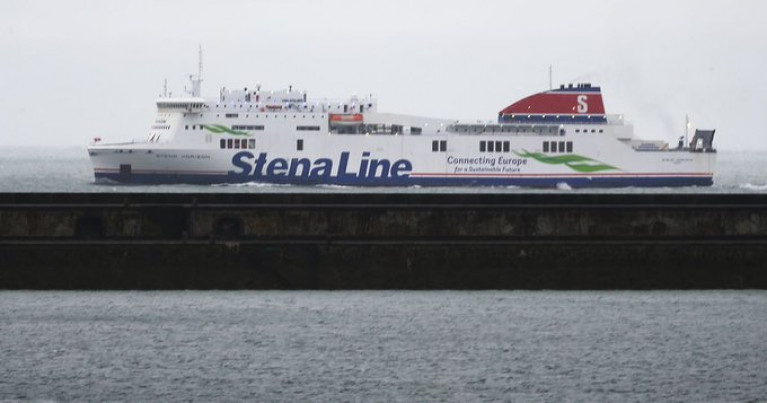Displaying items by tag: StenaFrance
Afloat has noted Stena Line's new Dublin-Cherbourg route launched in January, has not been operating on a regular basis by the inaugural 'E-Flexer' class ferry, in particular to sailings last month, writes Jehan Ashmore.
The operator's first route connecting the capital and mainland Europe began operations using the E-Flexer Stena Estrid, redeployed from the Dublin-Holyhead, where traffic so far this year is down due to post-Brexit.
The larger leadship E-Flexer ropax made a debut on the Ireland-Wales route in early 2020, just months before Covid-19 struck and subsequent first Irish lock-down that took place almost a year ago.
Another ropax, Stena Horizon having served this winter as Irish Sea relief ferry to cover overhaul of fleetmates, has recently taken up Dublin-Cherbourg duties, but otherwise normally operates Rosslare-Cherbourg.
But before Stena Horizon's debut on the Dublin-mainland Europe service, Stena Estrid had been running out of Rosslare to France, joining January's introduction of ro-ro freighter Stena Foreteller. This in an effort to boost capacity to meet surging demand from freight hauliers to bypass Brexit.
So why the change of ropax vessel serving the Dublin-Cherbourg route?, this led Afloat to seek a response from Stena Line below.
“Due to trade distortions on the Irish Sea caused by Brexit, Stena Line requires one of its E-Flexer vessels on the Rosslare-Cherbourg route due to the high demand from drivers for cabins on the ‘direct route’ and the other E-Flexers are required to cover similar demands into Belfast".
"The weekend service from Dublin-Cherbourg is covered by the vessel operating on Dublin-Holyhead, which is currently Stena Horizon, part of a more flexible fleet strategy employed by Stena Line where vessels are moved in line with current demand requirements".
Stena also added that "Demand remains strong on Dublin-Cherbourg and Stena Horizon is more than capable of handling the current demand but as always Stena Line will closely monitor traffic flows to ensure its fleet deployment is aligned for optimum efficiency.”
As of this afternoon, Stena Horizon is in Dublin Port prior to running week-day operations to Holyhead. While berthed at Rosslare Europort is Stena Foreteller and at the English Channel port of Cherbourg is where Stena Estrid is berthed.





























































